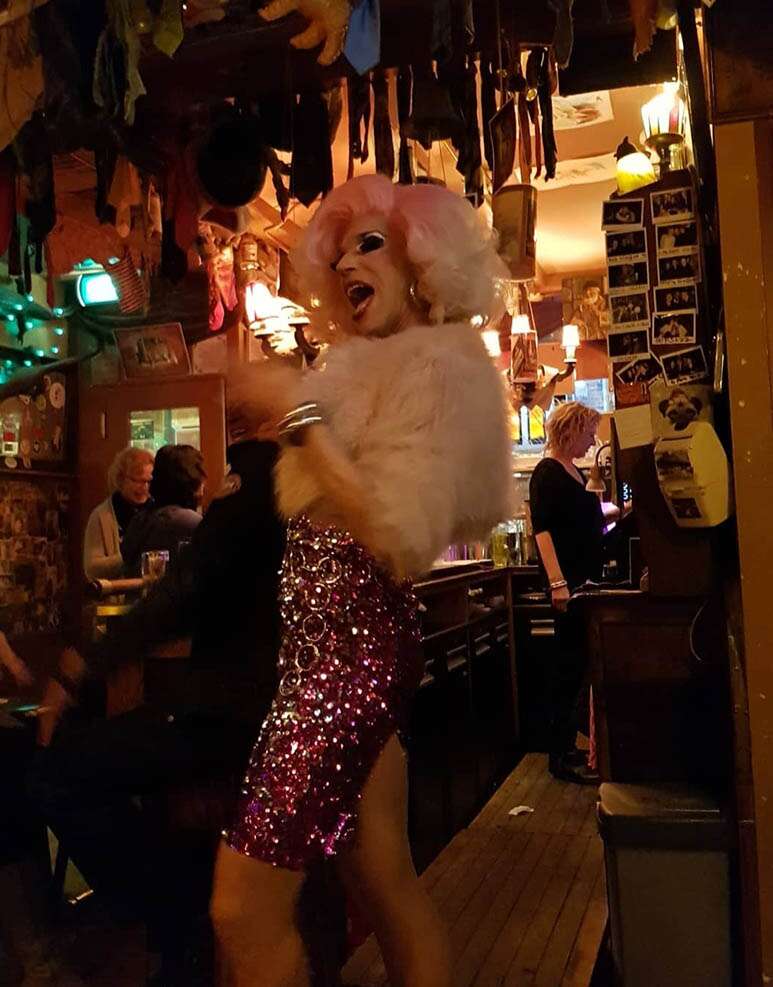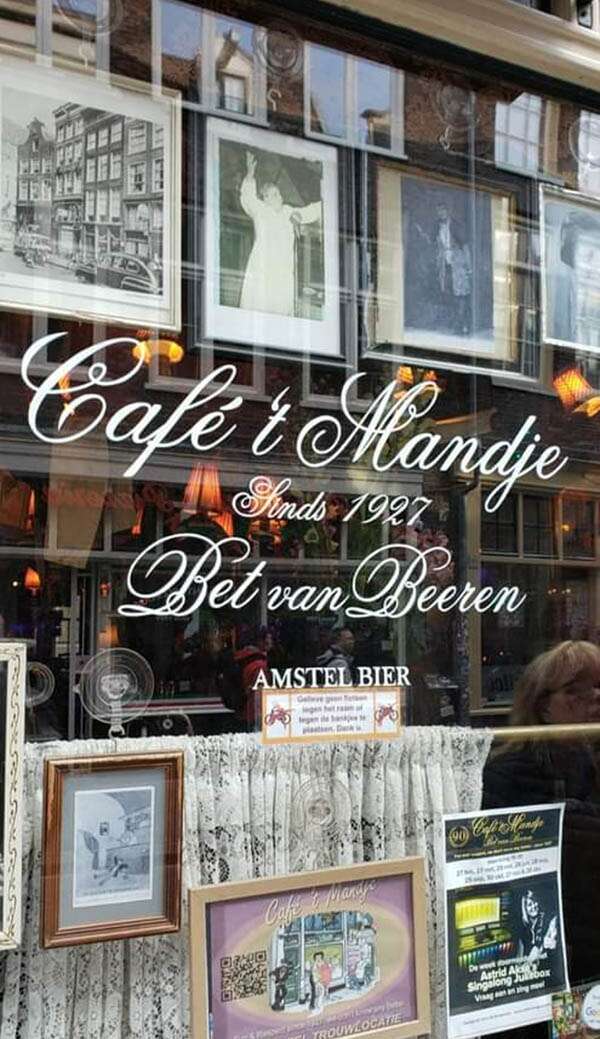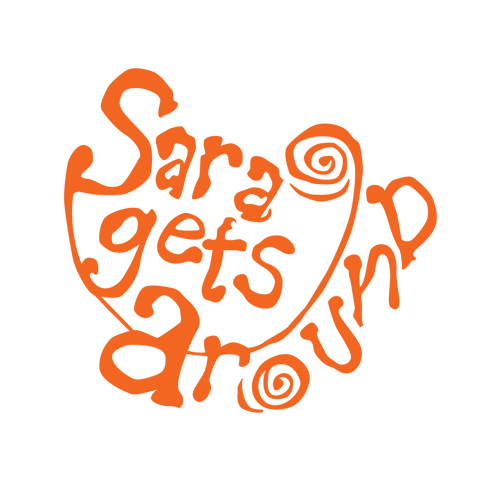Europe
Travel Articles
Café ‘t Mandje
All throughout her life, Bet van Beeren (1902-1967) was open about her homosexuality. Being lesbian/gay in Amsterdam was not publicly accepted, but it was decriminalized in 1811; long before any other city. Bet bought her Uncle’s bar when she was 25 and turned it into the only place in town that accepted lesbians and gays. Paris and Amsterdam can boast the earliest bars of this kind. She was already well-known in the neighborhood as a fish vendor, so it didn’t take too long to amass a clientele. She was also a lively character, a skilled story-teller, jokester and singer who could belt out all of the old Amsterdam songs, she also tore through the city on a motorcycle with a girl on her back. She drew people to her naturally.
While homosexuality was technically legal there was no place that openly accepted outward shows of emotion between couples of the same sex. Woman with woman and man with man could now go on proper dates together, hold hands and exchange loving looks without hiding. Bet, however, did not allow kissing (fears about police) nor dancing (she did not have a license), but anything was allowed one day a year; Queen’s Day. Following this open attitude, other less-than-welcomed people (artists, intellectuals, sailors, etc) were also warmly accepted. Beginning in the 1950s, when the police were suspected to be either in the bar or lurking outside, Bet would turn on the light in the porcelain owl in the window to warn people. Because of this, the Dutch word for owl, ‘uil’ now indicates a heterosexual.
Decorating the walls and the ceiling of the bar are momentos from Bet herself and her patrons. She liked when people left souvenirs behind. Several men’s ties hang from the ceiling that Bet collected (or “borrowed”) from her patrons, no one really knows why, I sense that she just liked them. Old Bet-era photographs and posters cover the walls inside beautifully illustrating their unique history. She passed away after 40 years of running the bar. Her body was laid out on the pool table inside the bar for 2 days.
Some may think that lesbian and gay (and trans, etc) specific places are no longer vital to their respective communities. This could not be further from the truth. They need a place special to themselves and others like them, as do most minorities. They need to feel enveloped by their own community, totally safe and free from fear of being shunned regardless of how “accepting” the outside world seems to become, because it is often not the reality.
Café ‘t Mandje remains the same welcoming, festive, old Dutch-feeling place that it always was. Unfortunately during my last visit to Amsterdam it was temporarily closed. (It is now open again!!) It will indeed open again and I hear that they are petitioning the government to raise it to landmark status (they will probably succeed) assuring that it will stay alive for many generations to come!
https://www.cafetmandje.amsterdam
Location:
Café ‘t Mandje
Zeedijk 63, Amsterdam


